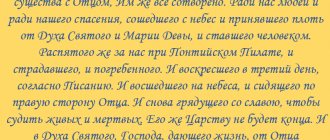Psalm 33 read:
I will bless the Lord at all times; I will make his praise in my mouth. My soul will glory in the Lord; let the meek ones hear and rejoice. Magnify the Lord with me, and let us exalt his name together. I sought the Lord, and heard me and delivered me from all my sorrows. Come to it and be enlightened, and your faces will not be ashamed. This beggar cried out, and the Lord heard and saved him from all his sorrows. The angel of the Lord will encamp around those who fear him and deliver them. Taste and see that the Lord is good; Blessed is the man who trusts in Nan. Fear the Lord, all you saints, for there is no hardship for those who fear him. The rich became poor and hungry; Those who seek the Lord will not be deprived of any good. Come, children, listen to me, I will teach you the fear of the Lord. Who is a person who loves life and sees good things? Keep your tongue from evil and your lips from uttering flattery. Avoid evil and do good; seek peace and marriage and... The eyes of the Lord are upon the righteous, and his ears are upon their prayer. The face of the Lord is against those who do evil, even to consume their memory from the earth. The righteous cried out, and the Lord heard them and delivered them from all their sorrows. The Lord is near to those who are broken in heart, and will save those who are humble in spirit. Many are the sorrows of the righteous, and the Lord will deliver me from all of them. The Lord protects all their bones, not one of them will be broken. The death of sinners is cruel, and those who hate the righteous will sin. The Lord will deliver the souls of his servants, and all who trust in him will not sin.
History of appearance
King David's psalm of praise was written at a time in his life when he was experiencing oppression and persecution from King Saul. Also at that moment, the Lord delivered him from another enemy - the cruel and treacherous king Abimelech. The entire text of the psalm is permeated with the confidence that the Lord accompanies and protects a person all the days of his life if he sincerely believes in the omnipotence of his Creator.
The Prophet of God Samuel received an order from the Almighty to anoint an ordinary shepherd named David to the kingdom of Judah. The young man began his service at the royal court and saved the people from Goliath, whom none of the Israelites could defeat. Despite the victory and the fact that Saul gave his daughter as a wife to David, he began to envy the former shepherd and began to pursue the young man in order to take his life. For several years, David's wanderings continued far from home; he was forced to constantly run away from place to place in order to save his life.
David came to the Philistine land and wanted to hide there from the persecution of the king of Judah, but the inhabitants of that land were angry with him because he defeated their hero, Goliath, so they captured the young man and brought him to their ruler. Realizing that the king would not spare him, David pretended to be mad, falling to the floor and foaming at the mouth. The ruler did not believe that this man had killed their giant, and drove him out of the palace. Having miraculously received salvation from the Lord, David wrote Psalm 33, in which he praised the Creator.
Psalm 33 in Russian:
I will bless the Lord at all times; His praise is continually in my mouth. In the Lord my soul will glory; The meek will hear and rejoice. Magnify the Lord with me, and let us exalt His name together. I sought the Lord, and He heard me, and delivered me from all my dangers. Those who turned their gaze to Him were enlightened, and their faces would not be ashamed. This beggar cried out, and the Lord heard and saved him from all his troubles. The Angel of the Lord encamps around those who fear Him and delivers them. Taste and see how good the Lord is! Blessed is the man who trusts in Him! Fear the Lord, all you His saints, for there is no poverty among those who fear Him. The Skimns are in poverty and suffer hunger, but those who seek the Lord do not suffer the need for any good. Come, children, listen to me: I will teach you the fear of the Lord. Does a person want to live and does he love long life in order to see good? Keep your tongue from evil and your lips from deceitful words. Avoid evil and do good; seek peace and follow it. The eyes of the Lord are on the righteous, and His ears are on their cry. But the face of the Lord is against those who do evil, to destroy the memory of them from the earth. The righteous cry, and the Lord hears, and delivers them from all their sorrows. The Lord is close to the brokenhearted and will save the humble in spirit. The righteous has many sorrows, and the Lord will deliver him from all of them. He keeps all his bones; not one of them will be crushed. Evil will kill the sinner, and those who hate the righteous will perish. The Lord will deliver the soul of His servants, and none of those who trust in Him will perish.
The meaning of prayer
To understand what the prayer is about, it is worth analyzing it verse by verse; this is necessary so that the person who will pronounce the text is aware of its entire deep meaning and carries out the ritual consciously:
- From 1 to 3. It says that everything that people do good in their lives is the merit of the Almighty, and you should not attribute it to yourself, but, on the contrary, constantly praise the Heavenly Father for all blessings and protection.
- Verse 4 In it, the psalmist David calls on all believers to join him in a prayer of praise, since he alone cannot give God the honor that he deserves.
- From 6 to 7. By his own example, King David experienced all the mercy and power of the Lord, who raised a simple shepherd above the kings according to his will, therefore the psalmist calls on other people to draw closer to the Most High and be imbued with wisdom from him, which is beyond human understanding.
- Verse 8 Here we are talking about the fact that those who are devoted to the Lord have a protector in the form of an angel of God who will destroy all enemies who are plotting evil against Christians.
- Verse 9 This section encourages people to experience the goodness and great love of the Creator.
- Verse 11 In it, the Jewish people are called thirsty for God. It also draws attention to the fact that God's people are separated from the pagan tribes.
- From 12 to 14. The psalmist David calls on the pagans to turn to the one Living God and stop serving idols. It also talks about the danger of judging your neighbor.
- From 15 to 16. Here is a reminder for all believers that it is necessary to avoid evil and strive to do good deeds, because the Lord sees even what is hidden from human eyes and blesses a hundredfold for the good done by man.
- 21st verse. It is said that the Almighty blesses the obedient and faithful and grants them abstinence and piety.
- 22nd verse. King David reminds us of what awaits people who did not accept the Lord, and says that their fate is in fiery hell.
After a person has grasped the meaning of the psalm written by the Jewish king David, he can begin to read it as part of the prayer rule that every true believer Christian performs.
Turn away from evil and do good (Ps. 33:15)
When it comes to fasting, most are interested in the “food” aspect. What can/cannot be eaten, with or without oil, with fish, without fish... Why do we adhere to certain food restrictions? What is the most important thing in fasting? We talked about this with Priest Vasily Zverev, confessor of the Smolensk Orthodox Gymnasium, rector of the gymnasium church in honor of St. Nicholas the Wonderworker.
- Father Vasily, a lot has already been said about this, but still... Why do we still need to fast, and even for such a long time? After all, on Easter everyone is happy anyway, everyone can receive communion - both those who fasted and those who did not fast - I have heard such opinions as well .
- In order to talk about fasting, its duration, severity, specifically about the spiritual and physical side, it is important to understand why it is needed in general, in itself, regardless of whether it is Great or some other in the church calendar, one-day or multi-day and etc.
In everyday life, a person often goes beyond his natural needs. For example, he eats more than is necessary to maintain physical strength or mental work. Often we don’t even notice that we consume a lot of starchy, sweet, frankly unhealthy foods (chips, cola); we are addicted to all sorts of “snacks” and dishes.
We can note the same kind of lack of control and immoderation in relation not only to food, but also to the information we consume through various sources of communication (the Internet alone is worth something), all kinds of entertainment, in what we say and do.
These deviations from natural needs often negatively affect not only the physical and mental state, when you can acquire some kind of disease, but also the spiritual. After all, body and soul are inextricably linked in a person. From childhood, a person is not accustomed to self-restraint and discipline; he has a stable habit of satisfying his desires and whims.
Fasting is for a person, say, with little church, to understand how to balance, normalize his needs, his life both physically and mentally: change his diet, get rid of excess weight, stop reading “junk” on the Internet, become calm, abstinent, patient morally, it must become something more - a weapon for fighting passions, with sin living in us. Even more than that, the fight against the devil, for whom a person “works”, living a life free from restrictions and abstinence. This is confirmed by the Gospel itself: “this generation is driven out only by prayer and fasting.” (Matt 17:21)
The duration of Lent is a Church institution, an established tradition. This was canonically established in the “Rules of the Holy Apostles” in the 4th century. Lent was established in remembrance of the fast of the Lord Jesus Christ, who fasted in the desert for 40 days, although examples of forty-day fasts are found in the Old Testament, for example, the fast of Moses or Elijah. As far as I know from history, the time of Lent arose from the period of preparation for the Sacrament of Baptism, when those wishing to receive Baptism went through a catechumen, studied the basics of the doctrine and at that time fasted. Over time, this became a general tradition - not only those about to be baptized, but also members of the Church began to fast.
Yes, everyone can rejoice on Easter - both those who fasted and those who did not fast. But if we were talking about people who do not attach special meaning and importance to fasting and yet decided to take communion on Easter, there are probably such people, then, I think, their joy will be different from the joy of those who practically investigated its real reason, who devoted time to your spiritual change, perfection, transformation.
“Some are frightened by the severity of fasting, and because of this they stop fasting altogether.
— Fasting must be approached taking into account individual characteristics: state of health, spiritual level. The main thing is to feel the connection between the limitations of the flesh and the spiritual state. Fasting should make us better.
— It’s clear that everything is individual, but please tell me, if a person is going to fast for the first time during Lent, what should he do immediately and abruptly give up fasting? Or is a smooth transition possible?
“I know that some who immediately began to fast strictly became very inspired and continued the entire fast, and there was some benefit. But I would advise choosing your own measure in fasting for everyone. Don't suddenly give up everything. As popular wisdom says: “Carry the burden with you so as not to fall when walking.” So that we do not suffer the fate of the old bottles from the Gospel into which new wine is poured. The main thing here is that there should be some infringement of oneself, one’s “carnal man”, leaving space for struggle, for improvement. And if the “burden” becomes too light, it can be made heavier, although “on the long path even the small burden is heavy.” The correct measure and constancy are like those of the holy fathers in ascetic work.
— How to get ready for fasting? Can you give yourself some instructions?
- You can take the following motto: “Turn away from evil and do good” (Ps. 33:15). And to begin with, perform its first part.
— Is there any benefit when a person does not eat meat during Lent, but at the same time does not go to church, does not take communion, sits at home, watches TV?
- This can be called fasting or dieting. Any fast, especially a long one, must be combined with intense prayer, and what is important - church prayer, the charter of Lenten services tells us about this (and encourages us to do this): a strict long fast is accompanied by divine services that increase in time. And if you sit at home and watch TV, then the benefits of such fasting tend to zero.
— Those who already have experience of some kind of abstinence in food notice that they are irritable during fasting. Does this come from hunger, malnutrition? What to do about it?
- Irritation can occur for various reasons. Abstaining from food can also contribute to this; a certain discomfort is created, because during fasting we deviate from the usual attitude towards our body, trying to “humble” it. As I already mentioned, it is necessary to feel the connection between bodily fasting and spiritual state. They should not exist separately. So you need to establish this connection, to feel the beneficial effect of abstinence on your spiritual state.
On the other hand, there may be temptations when human passion manifests itself - irritation comes. This can be compared to the exacerbation of an illness before recovery in medical practice. Our passion, to which the body is accustomed, rebels against us. You need to try to experience this internally, not show external aggression, and not pour out anger on your neighbors.
— If you feel weak and have no strength during fasting, is this normal, is this how it should be? Or is something going wrong here?
- Mild weakness may be present, but there is no need to bring yourself to exhaustion or extreme fatigue. One of the extremes is when we take on too strict a fast, so that we cannot do our usual work, and we can cause harm rather than benefit to our body.
We must remember the words of the Lord Jesus Christ from the Gospel: “The Sabbath is for man, and not man for the Sabbath” (Mark 2:27), in other words, we are not for fasting, but it is for us. In certain situations where you have to expend more energy, you can relax your fast in order to avoid fainting and maintain the necessary mental activity.
- And if it is easy for a person not to eat meat during Lent, he almost doesn’t like it, but it is difficult to give up baked goods, white bread - what to do?
— By practicing abstinence, we fight addiction. Why it manifests itself, in what situation it manifests itself - this is what we pay attention to. In this case, during Lent we will try to learn to moderately consume baked goods (with a lean composition) and white bread, if there are problems with this, but there is no need to give up bread or anything floury at all.
— A separate topic is fasting and children. How should children fast? There are many opponents of fasting for children... And parents often feel sorry for their children, how can they leave them without dairy for a long time? Many children do not like fish, and fish nowadays is an expensive pleasure. What should I do?
— Here I will limit myself to general reasoning. Because this is a purely individual topic. And it depends on existing traditions, the spiritual level of the parents. If we are talking about food restrictions, of course, fasting for children cannot be made similar to fasting for adults, even if this is a healthy, strong child. A growing body requires proper nutrition, consumption of animal protein, fats, and vitamins. This must be taken into account. A child, if he fasts with his parents, must be provided with a fasting menu that takes into account his workload from studies, various sections, especially sports, and various activities during extracurricular hours. How will he feel? How will it develop? What results will it have? This needs to be taken into account. This is especially true for young children.
If parents can provide such a diet for their child, where the necessary vitamins and microelements are present in sufficient quantities, then they can limit themselves to animal products.
Nowadays there are very few completely healthy children. Many people have weak immunity. If it is unreasonable to limit an already poor diet, then others may be added to existing diseases. Therefore, some people need to consume fish and dairy products.
The main thing for children during fasting is not food restrictions. The most important thing here is abstaining from all kinds of entertainment, limiting idle watching of TV, free use of the Internet, and getting rid of bad habits. Here we see a very wide field for moral and spiritual correction.
— It is known that in Orthodox schools some children are not members of the church and have different attitudes towards fasting. What can be done so that a child who still fasts because it is customary in his family is not embarrassed by this? How to explain?
— As far as I know, due to my communication with children at the Orthodox gymnasium, no one spoke out about the meaninglessness of fasting, its uselessness. Everyone thinks that fasting is necessary. Almost everyone tries (try) to fast, but they choose different measures for themselves, often not strict. Much here, again, depends on the rules established in the family and the church-going nature of the parents. If you have questions in this regard, I always help you understand how and in what ways you can fast for yourself.
It is necessary to note the importance of the child’s understanding of the post. Unfortunately, not everyone has this. Although this has been said and said. A child needs to recognize fasting not only as a “time of deprivation”, a “dark streak” in life, but also as a time of analysis and correction of his actions, habits, work on himself, spiritual dynamics at his own, childish level.
Therefore, if you fast, in essence, improve yourself, taking into account the above, and others consider fasting not essential or unnecessary, then who will win?
— At what age can a child decide for himself how to fast and not “coordinate” with his parents? For example, if at the age of 18 he says that he will fast during the first and last weeks of fasting, and the rest of the time he eats cottage cheese from his diet, shouldn’t parents interfere? This is fine?
— During Lent, it is up to the parents what kind of food is on the table. And if suddenly a child feels independent and decides to speak out, say, about relaxing his fast, then the parents always have the last word. But there is no need to force anyone. You can only advise, explain, motivate, and maybe agree after listening to the child’s arguments. In some church families, there is a practice when children strictly fast during the first, last and sometimes veneration weeks of the fast; the rest of the time they are allowed to eat not only fish, but also dairy foods if they wish. This relaxation is natural, especially for young children.
In the above example (18 years old), for a church person, the change in fasting should be discussed with a confessor who is familiar with the state of health and life circumstances of his ward.
— What problems and questions about fasting did you have to deal with as the confessor of the gymnasium?
— The main problem is that, in part, children enter the gymnasium whose parents are not familiar with church life. And the spiritual and moral education that is carried out by teachers and mentors, the knowledge of the foundations of Orthodoxy, which is invested here within the walls of the school, does not continue within the family, with all the ensuing consequences. The absence of a post is not the worst thing here.
For example, during Lent, the menu of the gymnasium refectory consists of Lenten dishes, but at home no one in the family fasts, or only the grandmother fasts, but she does not influence the situation. The child might not mind trying to join the church tradition and train willpower, but parents don’t think about it for various reasons, without going deeply into the meaning of fasting. The same thing happens with home prayer, and with the attitude towards the Church in general. The example of parents is the most effective means at the early stage of spiritual education.
Although there are such a minority, children communicate with each other, go on pilgrimages, and the attitude towards fasting, manifested in its non-observance, not only in the food aspect, manifests itself in one situation or another, causing temptation among those who try to observe it.
Another problem: a very superficial attitude towards fasting due to a lack of interest in leading a correct spiritual life, or even abandonment of the latter.
There is a certain dual attitude: the child himself does not see much meaning in fasting, but he has to fast because of the Lenten menu at home and in the gymnasium - on display he displays false humility, but inside there is protest and misunderstanding - why is this fasting? Why is all this needed? Fatigue from studying sets in and despondency sets in.
Questions that are very rarely asked by both parents and children relate more to some relaxations in fasting. Some people are overloaded with studying, and this takes away time that they could spend on spiritual reading or prayer. But, on the other hand, there is a certain plus here - this overload saves you from “vice and idleness.”
— Bodily abstinence is not only food restrictions, isn’t it? What should you pay attention to during Lent?
— Our body has five senses: sight, hearing, taste, touch, smell. Through them we perceive the surrounding reality. They all need, as the holy fathers write about this, protection. You need to pay special attention to such ones as vision and hearing. It will be useful to pay attention to what we read and watch on TV, computer, tablet, mobile phone. A person does not protect his vision and hearing from unnecessary, completely unnecessary and even harmful information. During Lent, why not take care to protect yourself from negative, useless information and television programs that some people watch indiscriminately? The media are often used for advertising and propaganda; stupid jokes and black humor have become the norm; stereotypes that are alien to the Christian worldview are constantly imposed. Films and cartoons are devoid of any plan, idea, moral load, not to mention computer games. A person damages his psyche, his health, loses time that he could spend on something useful and interesting, something that would really develop him. It is necessary to protect yourself from unnecessary corrupting information, to be selective about watching some programs and films, or even to do without a TV or computer for a while.
This works more globally than we think. What a person perceives, what information he hears and sees during the day, week, etc., most of the time of his life, is what shapes him. And if he spends a lot of time in idle correspondence on social networks, watching entertaining videos, computer games, often completely devoting his leisure time to this, what will fill him? Especially if there is no place for prayer and spiritual work in this time of life. So it turns out, as in the famous parable: “whichever wolf you feed, the stronger one will win.” You feed your laziness, idleness, passion - it will prevail.
Our language of communication is formed from what we hear and see. Everyone has probably already noticed how often young people communicate illiterately on the Internet. It is necessary to work on yourself, try to read more Russian and foreign classics, watch films with moral and spiritual content, and get acquainted with patristic teachings and creations. This is a spiritual treasury that enriches a person. To pursue something that develops qualitatively, that makes us better, that increases our intellectual and spiritual level. It is necessary to instill a taste for real art, literature, and music from childhood. Take an example from the lives of the saints.
By influencing our senses and protecting them, we form for ourselves a useful skill related to the spiritual state that will remain with us for the rest of our lives. We will begin to eat fast food again when the fast ends, but the positive experience of fasting in protecting the senses will remain with us and will help us throughout our lives.
“It happens that a person seems to have done everything right, fasted, prayed, confessed, took communion, went to church... But on Easter there is no complete joy, it is not given, this Easter heartfelt joy... What is the problem here?
— The question of spiritual joy directly depends on how the fast went. True spiritual joy is a direct consequence of the fact that fasting was done with sincere repentance, prayer, participation in the Sacraments, spiritual reading, etc. The main thing is that the fast should not be observed in letter, but in spirit. If repentance is not just a listing of sins that are repeated from confession to confession, but an analysis of one’s life, the reasons behind sinful actions and, as a consequence, a visible correction of one’s life. It is also necessary to think about the quality of prayer, so that it is not scattered and superficial. Spiritual reading should be reflected in our actions and communication with our neighbors, and not be a dry theory that we use only to argue with the priest. And so on...
Fasting teaches us how we should spend our entire lives. So that spiritual joy is not just a matter of Easter days, but an integral part of our entire earthly life in Christ, according to the word of the Apostle Paul to Christians: “Rejoice always” (1 Thess. 5:16).
— Father Vasily, your wishes for the passage of Lent.
— I wish you in the words of the Gospel of John: “Do not strive for food that perishes, but for food that endures to eternal life...” (6:27), because, as St. Nicholas of Serbia said: “Spiritual life is real life. Everything else is dust."
— Thank you, Father Vasily, for an interesting conversation!
Interviewed by Anna Vasilevskaya
Interpretation of Psalm 33
The Russian translation of the prayer is very popular, as it is easy to understand for the average believer. This version of the text is used to appeal to the Lord at home.
Text of Psalm 33 in Russian
Text of Psalm 33 for singing, with accents in Church Slavonic
The Church Slavonic prayer, as one that raises the words of the righteous to God more quickly, is read by people who speak this language well. This text is also used in services in churches.










